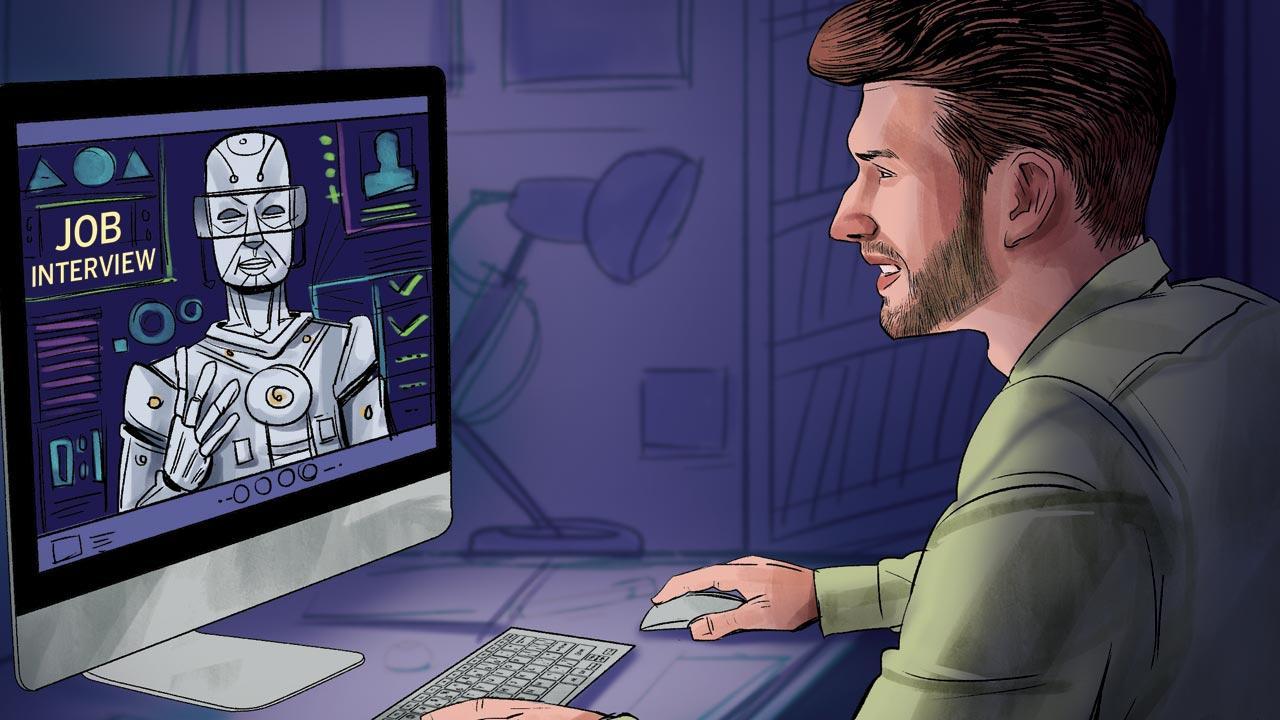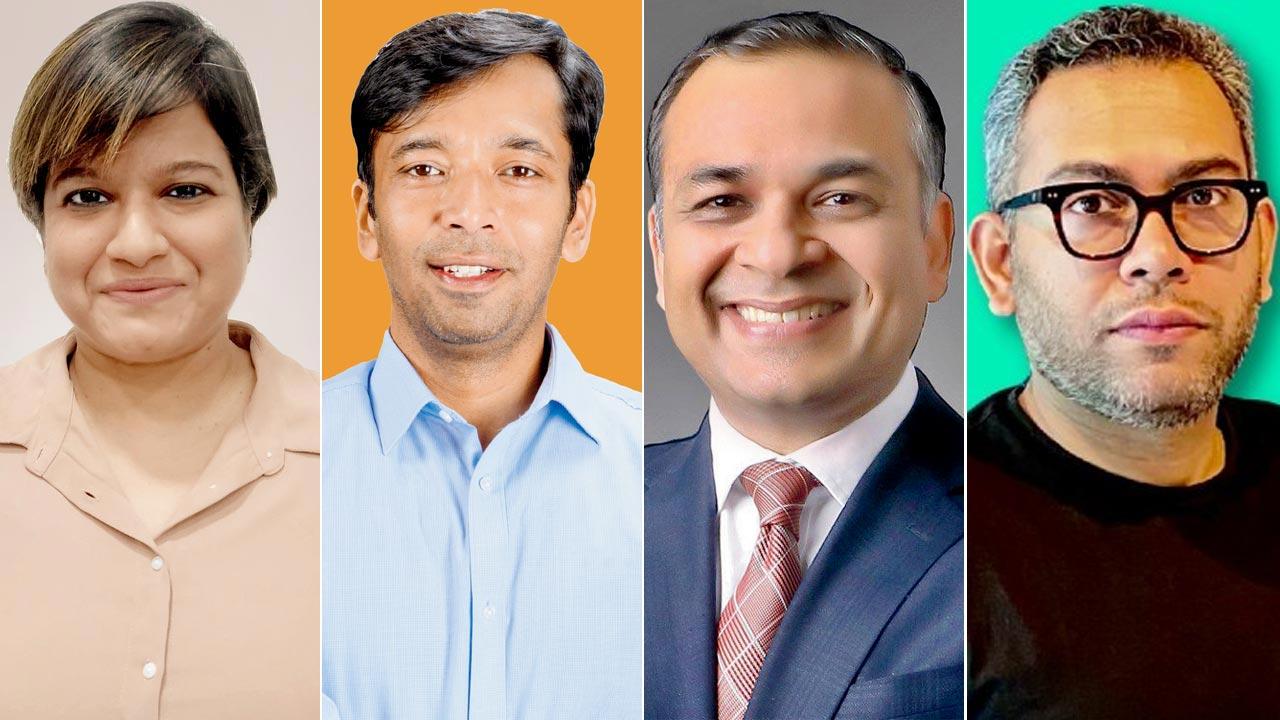It’s taking over! Multinationals have now begun to use Artificial Intelligence to scan your resume and even take the first round of interviews

Using AI for recruitment has made screening, assessment and overcoming biases easier for companies and it also makes the process quicker. Illustration/Uday Mohite
We make India employable,” says Jaideep Kewalramani, head of employability and Chief Operating Officer of TeamLease Edtech. The firm plays an aggregator role and teaches students fresh out of universities, or ones looking to find a job matching their skill set, the art of standing out. What they are also doing now, is teaching them how to make their resume AI friendly.
AI has always been a part of the human resources process of recruiting, but recently, more and more companies in the country are adopting the technology. This is why companies like Kewalramani have no dearth of clientele. “We help students in 100 universities across India understand how to word their resume so that a LinkedIn algorithm catches it. We are also teaching professionals how to give an initial job interview in a big company, which are increasingly being conducted by AI. You will be shocked, but on screen, will be an AI in human form asking questions in a standard format. It is only after the candidates score well in these interviews, do they reach the final round.” Some of the companies using AI for recruitment are monster.com, Infosys, Amazon, EY, Deloitte, among many more.
According to a research titled Recruitment Through AI in Selected Indian Companies, published by Siddhi Mehrotra and Akanksha Khanna, in January last year, “Using AI by organisations in on boarding, assessment, and interview is varying and yet to become pervasive. Talent acquisition metrics also indicated that the use of AI has significantly helped reduce the time taken to finish the entire process of recruitment and hiring of a candidate and, hence, is being adopted by firms.”
 Pritika Bhakta, Vishal Pradhan, Jaideep Kewalramani and Ujjal De
Pritika Bhakta, Vishal Pradhan, Jaideep Kewalramani and Ujjal De
The biggest plus by using AI, insist most HR executives for talent acquisition, has been the time saved. Vishal Pradhan, Head of Product Management, iMocha concurs, “In recruitment, we focus on two things, one is efficiency and effectiveness. Traditionally, we used to go through job openings, newspapers and sites and candidates used to apply. Then you would wait for someone to reach out. How tech has helped is that all of this can be done online. What we do is we help organisations with an effective way of screening through an assessment, which is based on job role and screening. Post that, we also provide insights from the interview. We do everything till they send out offer letters, and we do so with the help of tech so that the organisation saves on logistical, travelling costs and builds speed.”
Many experts believe that while this is a great tool for hiring, AI picks up, stores and implements human biases the next time they screen a candidate. In 2022, Amazon scrapped an AI tool for talent acquisition after it showed that bias on the bases of gender. Amazon’s computer models were trained to vet applicants by observing patterns in resumes submitted to the company over a 10-year period. Most of who were males, which is an unsaid reality of the tech-industry.
A few companies have been trying to rid the AI of this bias and some more, KarmaV—an AI-based SaaS platform is focused on solving diversity, equity, and inclusion. The company is headquartered out of Singapore and has entered the Indian market recently. Co-founder Ujjal De says, “AI is a reflection of what we as humans tend to do. We basically come in and ask a MNC to give us to give their data that has been collected via AI. We then place into our AI’s algorithm. Soon it reflects these biases. Since it’s our algorithm, we jailbreak it and start feeding the AI ethical information.”
The company has found that the AI in most Indian companies does have the gender-bias, but the bigger problem in the sub-continent is that it has an unusual proclivity towards Tier 1 universities. “A lot of times AI tools in India just bring up a candidates resume because he/she belongs to a certain top tier or Ivy League. The AI does not realise that at times, the candidate’s skill set does not match their requirement.”
That’s why HR executive Pritika Bhakta, Head—Executive Search Bayleaf HR Solutions Private Limited, feels that the balance is the key. “As a recruiter, I think that the best way to hire people is to find a balance between technology and people. AI can make the process more efficient and scalable, but humans still need to use their judgment and intuition to judge intangible qualities and make complex hiring choices. Human-centered evaluation helps in in-depth interviews, judging cultural fit, and soft skills, which requires subjective judgment and understanding of the situation, people must be involved,” she says.
 Subscribe today by clicking the link and stay updated with the latest news!" Click here!
Subscribe today by clicking the link and stay updated with the latest news!" Click here!








